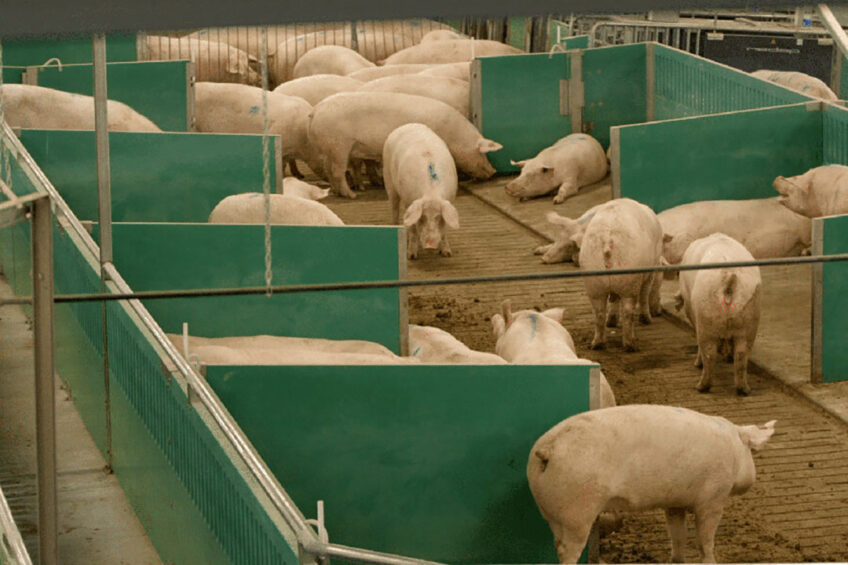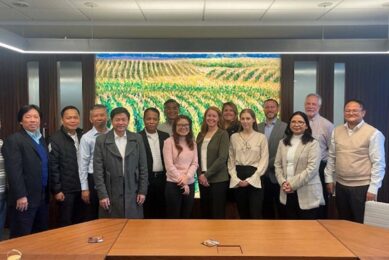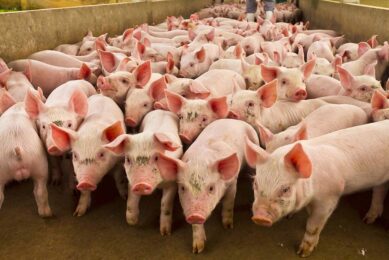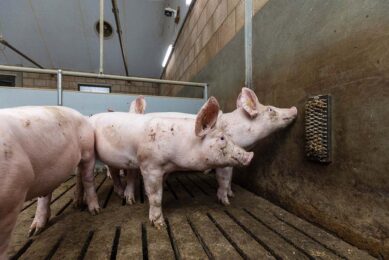Ruling on controversial Proposition 12 expected soon

A ruling from the US Supreme Court on the legality of Prop 12 may be coming as soon as the end of January 2023.
Fully implemented in January 2022, Prop 12 outlines new standards for confinement systems for sows, poultry and veal calves in California. Each breeding sow must have 24 ft2 of space and gestation crates are not permissible. However, it also prohibits any business from selling into California pork meat, veal meat and eggs derived from animals housed in a manner that violates Prop 12 standards. It therefore has national and even international reach. California only has a little pork production, but is the largest pork market of any state – about 13-15% of the total US market.
As Pig Progress reported in late 2022, the US pork industry strongly opposed Prop 12 since it was passed in California in 2018.
Massachusetts has a law similar to Prop 12 that includes in-state sales of pork produced in other states. Enforcement of this law is on hold until the Supreme Court rules on Prop 12. Other state governments are creating similar laws.
Not optimistic
As reported recently by a US-based media outlet, Michael Formica, chief legal strategist for the National Pork Producers Council (NPPC), is not optimistic but is still also hopeful about the ruling going in the favour of NPPC. “I think the signals seem to be pointing in the right direction.”
Formica added however that if the ruling supports the legislation staying in place, “it would open the floodgates of these ballot initiatives and activist measures in high-population states.”
He fears that in “New York, California, New Jersey, Massachusetts…we would see attacks on agriculture coming left and right for every issue under the sun.”
2022 court case
In October 2022, the US Supreme Court heard arguments from the NPPC and other parties looking for the Court to strike down Prop 12. The arguments focused on the Commerce Clause of the US Constitution.
That is, NPPC, in collaboration with the American Farm Bureau Federation, filed a brief arguing that Prop 12 violates the Clause, which restricts states from regulating commerce outside their borders. The US government was in agreement; the US Solicitor General also filed a request with the Supreme Court to strike down the legislation.
Entwined industry
In October, Canadian pork producers made a ‘friend of the court’ submission to the US Supreme Court relating to the Prop 12 case, in collaboration with other parties including Mexican pork producers. The submission pointed out that the “entwined nature” of the 3 nations’ pork industries means “it is nearly impossible to trace a particular pork product back through the supply chain to the original breeder sow.”
Thus, for products that might have originated from sows in Canada and the US to be in compliance with the legislation, all Canadian and Mexican sow farmers would need to reconfigure their breeder sow housing facilities.
Gary Stordy of the Canadian Pork Council (CPC) said in October that the estimate of the agriculture department of California of $ 60,000 US (€ 56,500) for a typical hog farm to comply with Prop 12 is inaccurate. He suggested $ 200,000 US (€ 188,000) would be the typical cost. Inspection and certification represent large potential additional compliance costs.
Ready to comply to Prop 12
Some time ago, 2 of the largest US pork companies, Tyson Foods and Hormel have agreed to comply with Prop 12. Major Canadian integrated pork producer Maple Leaf Foods has already transitioned all its own production to open housing for gestating sows.
Another major Canadian pork producer, Quebec-based duBreton, produces a line of ‘humane-certified’ pork sourced from Canadian farms and stated in 2022 that it will comply with Prop 12.
 Beheer
Beheer








 WP Admin
WP Admin  Bewerk bericht
Bewerk bericht